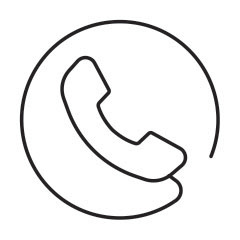Your Care Instructions
Breast engorgement is the painful overfilling of the breasts that can occur during breastfeeding (sometimes called chestfeeding). It usually occurs when your breasts make more milk than your baby can drink or when you are unable to breastfeed or pump. It also happens when you stop breastfeeding your baby.
Breast engorgement can make it hard for your baby to latch on to your nipple. Your baby may then be unable to breastfeed. This makes the problem worse.
If you breastfeed or pump, engorgement should get better in a few days. If you've stopped breastfeeding, it can take longer. Over time, your body will stop making milk. This can take up to several weeks.
Follow-up care is a key part of your treatment and safety. Be sure to make and go to all appointments, and call your doctor or nurse advice line (811 in most provinces and territories) if you are having problems. It's also a good idea to know your test results and keep a list of the medicines you take.
How can you care for yourself?
- Try taking ibuprofen (Advil, Motrin) to reduce pain and swelling. Or you can take acetaminophen (Tylenol) to help with discomfort. Be safe with medicines. Read and follow all instructions on the label.
- Do not take two or more pain medicines at the same time unless the doctor or midwife told you to. Many pain medicines have acetaminophen, which is Tylenol. Too much acetaminophen (Tylenol) can be harmful.
- If your breasts hurt and feel too full, try hand expressing a small amount of milk just until they feel comfortable. But don't try to empty your breasts all the way. Releasing a lot of milk will cause your body to produce larger amounts of milk. This can make breast engorgement worse.
- If you are breastfeeding, continue to regularly breastfeed when your baby is hungry. Try to not miss any feeds.
- Change your breastfeeding positions to help remove milk from all areas of your breast. Your breast should soften as your baby feeds, and you should hear your baby swallowing.
- If your breast is very full and your baby is having trouble latching, try hand expressing a small amount of milk before feeding. This can help soften your breasts to make it easier for your baby to latch.
- If you have swelling around your nipple and your baby is having trouble latching, try using reverse pressure softening before feeding. This will help soften the area around your nipple to make it easier for your baby to latch.
- If you have any problems with your baby's latch or breastfeeding, talk to your doctor or midwife or a lactation consultant.
- If your baby does not breastfeed, express your milk by hand or pump. Try to only express the amount of milk your baby needs.
- If your breasts feel heavy and full, but your milk is still flowing, it may help to put a warm cloth or towel on your breasts for comfort. Apply a warm compress before breastfeeding. Only apply warmth for 3 to 5 minutes. Using heat for too long can cause swelling and tissue damage.
- If the pain and swelling get worse and your milk is no longer flowing, apply a cold compress. Put ice or a cold pack on the area for 10 to 20 minutes at a time. Put a thin cloth between the ice and your skin.
- To reduce the pain and swelling in your breasts, try using gentle lymphatic drainage.
- Wear a supportive bra that fits.
- Avoid firmly or deeply massaging your breasts. This can cause tissue injury and inflammation.
When should you call for help?

Call your doctor, midwife, or nurse advice line now or seek immediate medical care if:
- You have tried the treatments above but still cannot latch your baby or express your breastmilk.
- You have symptoms of a breast inflammation or infection, such as:
- Increased pain, swelling, warmth, redness, or a colour change on your breast.
- Red streaks extending from the breast.
- Pus draining from a breast.
- A fever.
Watch closely for changes in your health, and be sure to contact your doctor or midwife if:
- You do not get better as expected.
Where can you learn more?
Go to https://www.healthwise.net/patientEd
Enter Z048 in the search box to learn more about "Breast Engorgement: Care Instructions".
